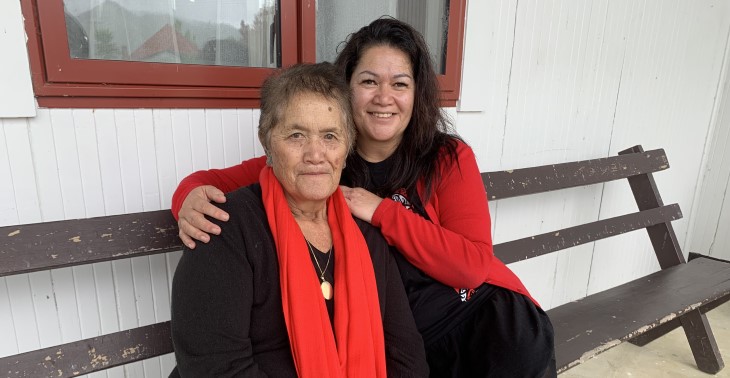‘Don’t tough it out’
We have launched a campaign called Kia Mahea Kia Puāwai (making it clear so we can flourish). It's a by-Māori, for-Māori approach, designed to share practical information about services and support available to whānau when they are injured.
Our research tells us that Māori are less likely to seek our help for minor injuries and overall have lower claim rates.
We also know Māori are 2.5 times more likely to experience a serious injury, but less likely to make an ACC claim (by around 20 percent). We acknowledge we can do more to ensure Māori who experience an accident or injury can access better services through ACC.
“Everyone in Aotearoa is covered by ACC if they’re injured, whether they’re working, unemployed or retired,” says Michelle Murray our Tumu Pae Ora.
“But significant barriers mean that not all New Zealanders have equal access to ACC’s services. Māori are around 20 percent less likely to make an ACC claim.
“This inequitable situation doesn’t sit right with ACC, and we are committed to changing it.
“We acknowledge this inequity. We have set the stage for increased trust and meaningful change – a new chapter in ACC’s relationship with Māori that has already begun.”

Addressing the barriers
In addition to awareness, there are also a range of barriers ACC needs to overcome to support Māori in seeking the available help following an injury.
These include improving access and knowledge around what support is available.
Through this campaign, we want to ensure Māori are aware of all the support they are entitled to access when they are injured. It’s designed to highlight the impact of an injury on whānau and wider community, and to seek help, rather than ‘tough it out’.
The call to action, developed with the research insights is – Don’t tough it out, and get help.
We know that our public awareness campaigns are resonating with Māori and in particular a younger demographic aged 18-34.
However, aligned with Te Tiriti o te Waitangi and the aspirations of our Māori strategy, Whāia te Tika, we need to improve this work. We are focused on increasing Māori awareness of ACC services to let whānau know how we can support them following an injury.

Improving awareness so Aotearoa knows how we can help
The foundation of our public awareness engagement approach was a research insight in 2019. It showed that half of New Zealanders and almost 60 percent of Māori had low awareness of ACC’s role and services.
This means many people were likely to be missing out on the help they needed following an injury. This ultimately impacted on health outcomes.
Low awareness means people don’t understand us and what we can provide for them and their whānau through our services.
As a result, Māori are less likely to get in touch with us or a health provider following an injury.
They are less likely to engage with rehabilitation and care pathways. They will likely be delayed in returning to their everyday life and work.
This impacts not only the individual, but their whānau and wider community.
How we will be telling this story
Through this campaign we are hoping to improve Māori access, experience and health outcomes.
The campaign has been developed through a collaborative by-Māori, for-Māori approach. It is based on research insights.
The content has been created in collaboration with and features D’Angelo Martin. He is a well-known Māori journalist, writer, actor, comedian and social media influencer.
D’Angelo has worked with us previously on engaging with Māori in support of our Tamariki and Moana campaigns.
He developed the three videos (Aunty at home, Gym goer and Kapa Haka) in response to research insights. The content is designed to resonate with Māori with an authentic Māori voice. It is relatable, humorous and develops an emotional connection.

Our campaigns are making an impact
Our research shows that our engagement campaigns are making a difference.
Over the last two and a half years, over one third of New Zealanders have seen our campaigns. This amount of recognition is twice the government campaign benchmark with a similar media spend.
Those who see our campaigns feel more positively about us and when we’re in market we lift awareness across our service offering.
When Māori see our content their brand metrics improve. This is measured in awareness, understanding, visibility, sentiment (liking), media sentiment, brand trust.
Our public awareness campaigns are resonating with New Zealanders. In particular with a younger demographic of New Zealanders aged between 18 and 34, Māori, Pāsifika and Asian people, and people living in Auckland.
Māori are engaged with our content, especially on digital, as shown by click through rates and time on site. We support our public advertising with client stories on our channels. These stories, which highlight how ACC is responding to whānau centred needs, have been very successful.
We recently celebrated rongōa Māori provider Teresa Hart. She is supporting her whānau and community in Northland. We have told many other Māori client stories in the past few years. These stories have shared how ACC has helped them in their recovery journey as they achieve remarkable things.
We want to continue to improve Māori access, experience and health outcomes.




